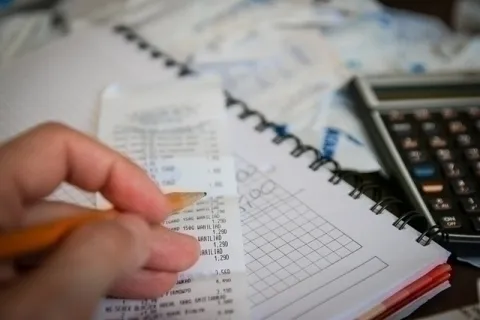- Overconfidence can lead traders to take on too much risk, believing they can beat the market.
- Confirmation bias makes traders seek out information that supports their existing beliefs, ignoring contrary evidence.
- The fear of missing out (FOMO) can drive traders to make impulsive decisions based on others' actions rather than their own analysis.
Hey folks, hope y'all are doing well. Just been pondering over this for a while now and thought who better to ask than you guys. So, here's the thing. I've been dabbling a bit in trading recently and found it quite intriguing. However, I've also heard there can be psychological traps that traders often fall into. You know, things like letting emotions cloud judgement, falling for common misconceptions, or making impulsive decisions based on market rumors, etc. Was wondering if you could shed some light on this? What are some common psychological traps in trading that you've come across or experienced? Would love to learn from your insights. Cheers!
A common psychological trap I’ve seen in trading is known as "the anchoring bias." This is where traders rely heavily on the first piece of information they receive (the "anchor") and make decisions based on that, even if new information arises that contradicts it. So, for example, if they bought a stock based on glowing reviews, they're likely to hold onto it, even if the company's situation takes a turn for the worse.
Another trap is "herding behavior" which is where traders tend to follow 'the crowd' or market sentiment, leading to bubbles and crashes on the financial market. They see other people buying a particular stock, assume these people know something they don't and make the same investment, without any concrete research.
Lastly, the "gambler's fallacy" is another psychological flaw that leads traders to see patterns where none exist. For example, after a string of losses, a trader may convince themselves a win must be imminent, leading them to take risky trades.
How about you folks? Can you relate to these or have you experienced different psychological traps?
Definitely, we should never forget the "overconfidence bias". This is when traders become too confident in their skills and knowledge, underestimating the risk involved. Overconfidence can lead to risky trades, ignoring potential red flags and ultimately significant losses.
While these traps are indeed something to consider, it's also critical not to swing too far the other way, falling into what's often called "analysis paralysis." This is when a trader becomes so overwhelmed by needing to analyze every little piece of data, every trend, or every possible scenario, that they end up being unable to make any decision at all. Not taking action has its risks, too; opportunities can pass by while one is too wrapped up in needing to feel 100% certain. In the volatile world of Trading , such certainty is often elusive. Trading is as much an art as it is a science, and it takes experience to strike the right balance. Have any of you been caught in this conundrum - over-analyzing until it hinders decision-making?
Absolutely, there's also "FOMO" - Fear Of Missing Out. In trading, this can lead to impulsive decisions, like jumping on a hot trend too late, or panicking and selling off if the market dips. It's essential to stay calm, stick to your plan and not get carried away by what others are doing.
I'm a bit skeptical about how often the so-called "loss aversion" gets overlooked when discussing trading psychology. So many traders are legitimately afraid of taking losses – to the point where they'll hang on to losing positions far longer than rational justification would allow. They're willing to risk substantial sums in the hope of breaking even, which can lead to even greater losses. This aversion to recognizing a loss seems to go much deeper psychologically than we might admit. It's like confirmation bias in disguise – acknowledging a loss would also mean admitting that the initial decision was flawed. Has anyone else observed this or found themselves unable to cut losses at a sensible point?
Oh, absolutely, we can't leave out our dear friend "recency bias." This cheeky little cognitive hiccup has us traders believing that what happened in the market most recently is bound to continue. If stocks were on a roller coaster ride upward in the last few days, some traders strap in, expecting the joyride to continue. Conversely, if there’s been a downturn, it’s like everyone’s expecting an economic apocalypse. The market sneezes and suddenly we forget it doesn't always mean there's a cold coming! It's the financial equivalent of expecting a coin to keep landing heads just because it did the last three flips. Pretty sure that coin doesn’t have a memory, and the market certainly doesn't care about hurting our feelings. Anyone else been on the recency bias bandwagon, only to have it make an unexpected stop?
It's key to be mindful of the "sunk cost fallacy," which can trap traders into throwing good money after bad. Just because we've invested time or capital into a trade, doesn't mean we should hold on if the reason for entry no longer holds – better to assess the current situation afresh. Remember, past costs are sunk; they should not dictate our future investment decisions.
Indeed, it's also worth noting the "endowment effect," where traders value the stocks they own more highly simply because they own them. Detachment is crucial to avoid this bias. Stay objective — your portfolio will thank you.
Unfortunately, the "disposition effect" is a trap where traders are prone to sell winners too quickly while holding on to losers for too long, driven by an irrational desire to avoid the regret of a bad choice. It's a fast track to underperformance, but alarmingly common.
- What is a securities' yield and how can it be analyzed? 5
- How do I use price charts for market analysis? 3
- Can anyone explain the principle of contrarian investing? 4
- Can you explain the concept of scalping in trading? 3
- How can I calculate the risk-reward ratio in my trades? 2
- Can you explain the concept of supply and demand analysis? 12
- How do you cope with a series of unsuccessful trades? 10
- How can I manage risk in my trading? 3
- Can you explain the concept of a trading plan? 3
- How can changes in a company's market share influence its stock price? 1
- How do you navigate the regulations surrounding short selling? 317
- What are Forex trading and its basics? 289
- How do you manage stress during volatile market conditions? 216
- How does a stop-loss order work in trading? 205
- What tax implications should I consider when trading? 199
- What are the best platforms for online trading? 191
- What's the difference between day trading and long-term investing? 188
- What is swing trading and how is it different from day trading? 185
- How do you avoid letting past trading successes or failures impact your future decisions? 180
- Can you explain the concept of short selling in trading? 178

We have compared the best crypto exchanges for you. Just take a look at our free crypto exchange provider comparison.

We have compared the leading crypto tax tool providers for you. Check out our free crypto tax tool provider comparison.
Blog Posts | Current

Protect Your Capital with Effective Risk Management in Trading
Risk Management As a beginner trader, you're likely eager to dive into the markets and start making some profits. However, before...

Different Cost Average Trading Strategies
Cost Average Trading is one of the most popular trading strategies used by investors to minimize their risk and maximize...

Automating Your Trades: The Power of Trading Algorithms
As an avid trader, you've probably heard the buzz around trading algorithms. But what are they, and how can they...

From Chaos to Consistency: Why a Trading Setup is Key to Success
Trading is an exciting and rewarding way to make money, but it can also be overwhelming for beginners. One of...

Mastering Your Mindset: The Key to Successful Trading Psychology
As a trader, your success in the markets depends not only on your technical skills and market knowledge, but also...

Don't Fall for the Hype: The Risks of Using Trading Bots
As a beginner trader, you may have come across the idea of using trading bots to automate your trading and...

Breaking Down the Buzzword: What is a Trading Bloc?
Are you familiar with the term "trading bloc"? It may sound complicated, but it's actually a concept that can have...

The 5 most common mistakes made by crypto traders
The 5 most common mistakes made by crypto traders Crypto trading is becoming increasingly popular, but there is great potential to...

Maximizing Returns: The Importance of Rebalancing Your Portfolio
Rebalancing your portfolio is an important part of any long-term investment strategy. It involves periodically adjusting your portfolio's asset allocation...

The Trader's Dilemma: Dealing with Losses in Trading
As a trader, losses are an inevitable part of the game. Even the most successful traders will experience losing trades...
